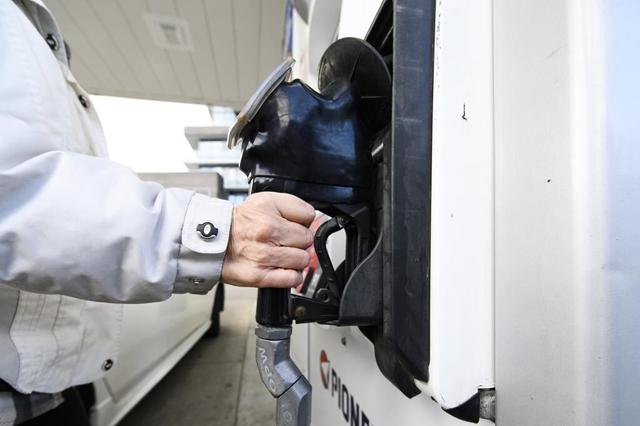
A person fills up at a gas station in Mississauga, Ont., Tuesday, February 13, 2024.THE CANADIAN PRESS/Christopher Katsarov
Drivers in Eastern Canada, particularly in regions like Ontario, are experiencing a significant increase in gasoline prices, with jumps of around 10 cents per litre overnight. The information comes from GasBuddy, a platform that tracks gas prices. Patrick De Haan, GasBuddy's head of petroleum analysis, notes that such price hikes during the spring season are typical due to the transition from winter to summer gasoline blends. He explains that many areas in Eastern Canada have recently switched to the more expensive summer blends, leading to the spike in prices.
De Haan elaborates that the cost difference between winter and summer gasoline primarily stems from the composition of the blends. Winter gasoline contains higher levels of butane, a cheaper yet more volatile component, which lowers overall production costs. However, summer gasoline requires additional additives and processing steps to reduce evaporation in warmer temperatures, thereby curbing air pollution. These factors contribute to a production cost increase of about 5 to 10 cents per litre for summer gasoline.
Across Eastern Canada, the price increases vary slightly. Quebec sees a rise of approximately 12 cents per litre, while New Brunswick experiences a five-cent hike, and Nova Scotia witnesses a modest increase of three cents per litre.
Roger McKnight, chief petroleum analyst at En-Pro International Inc., sheds light on the financial implications for consumers. He explains that the process of transitioning to summer blends is expensive for refineries, and they pass on these costs to consumers, resulting in higher pump prices. McKnight points out that this year's price surge is larger than the average increases seen in recent years, attributing it partially to the delayed recovery of U.S. refineries from maintenance periods. He notes that U.S. refineries are operating at 88% capacity instead of the typical 95% for this time of year, which adds to supply pressures.
Western Canada, however, does not experience the same level of price hikes. De Haan attributes this discrepancy to variations in gasoline suppliers across Canada, resulting in different timelines for transitioning to summer blends. He explains that Western Canada, closely tied to the U.S., has already completed the switch to summer gasoline, without causing significant price shocks. Unlike their eastern counterparts, Western provinces did not benefit as much from discounts on the winter blend, hence avoiding sudden price hikes during the transition.
De Haan clarifies that the current increase in gas prices is not linked to recent carbon tax hikes or ongoing conflicts in the Middle East affecting global oil prices. He predicts that prices will begin to decline between late May and July, as is the seasonal trend every year.
In summary, drivers in Eastern Canada are facing a notable spike in gas prices due to the transition to more expensive summer blends. Factors such as increased production costs, delayed refinery recoveries, and regional supply dynamics contribute to the price surge. While Western Canada has already transitioned to summer gasoline without significant price shocks, Eastern provinces are grappling with the aftermath of the switch, with relief expected in the coming months as prices typically start to decline during late spring and early summer.















